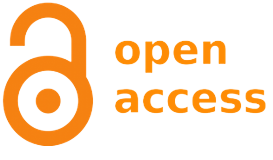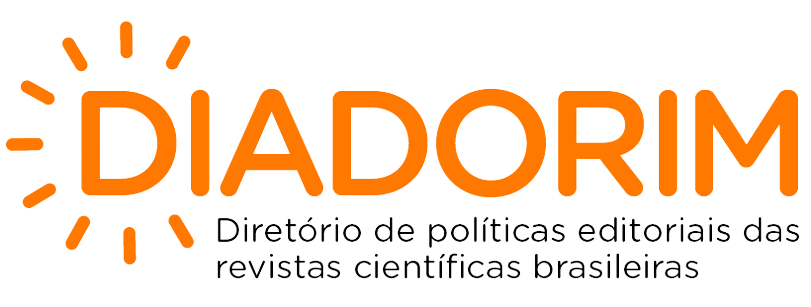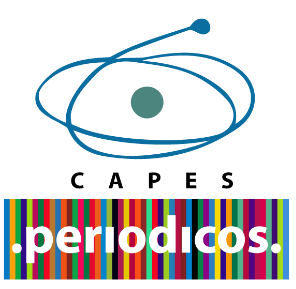Organizational Intelligence Practices focused on the planning and execution of ostensive policing
a case study in the Military Police of Paraná
DOI:
https://doi.org/10.5433/2317-4390.2023v12n1/2p62Keywords:
Knowledge management, Organizational intelligence, Ostensive policingAbstract
Objective: This research seeks to analyze the existence of Organizational Intelligence (OI) elements in processes related to operational planning and execution in the Military Police of Paraná State.
Methodology: Case study, through the collection and content analysis of documents and interviews with representatives of management bodies of the Military Police of Paraná State.
Results: It was verified that the organization has norms that support the elements of the OI in its processes related to the planning and execution of policing, with a greater presence of organizational reasoning and cognition, mainly due to several norms published since 2019.
Conclusions: The use of OI in the norms and processes that involve the planning and execution of ostensive policing, provides the organization with rational decision-making, the efficient and effective use of its resources, the understanding of its operating environment, the improvement of practices, among other factors.
Downloads
References
ALTINDAÄž, Ö.; ÖNGEL, V. Information Management, Organizational Intelligence, and Innovation Performance Triangle: Empirical Research on Turkish IT Firms. SAGE Open, [S. l.], v. 11, n. 4, p. 1-18, out. 2021. DOI: https://doi.org/10.1177/21582440211052550. Acesso em: 22 jun. 2022.
ALVARES, L. M. A. R.; ITABORAHY, A. L. C.; MACHADO, R. P. M. Modelo de Maturidade em Inteligência Organizacional: uma visão integrada à gestão da informação, gestão do conhecimento e inteligência competitiva. Informação & Sociedade: Estudos, João Pessoa, v. 30, n. 4, p. 1-21, 2021. DOI: https://doi.org/10.22478/ufpb.1809-4783.2020v30n4.57352. Acesso em: 22 jun. 2022.
ANTUNES, H. J. G.; PINHEIRO, P. G. Linking knowledge management, organizational learning and memory. Journal of Innovation & Knowledge, [S. l.], v. 5, n. 2, p. 140-149, Apr. 2020. DOI: https://doi.org/10.1016/j.jik.2019.04.002. Acesso em: 22 jun. 2022.
AWAMLEH, F.; ERTUGAN, A. The Relationship Between Information Technology Capabilities, Organizational Intelligence, and Competitive Advantage. SAGE Open, [S. l.], v. 11, n. 2, p. 1-14, Apr. 2021. DOI: https://doi.org/10.1177/21582440211015201. Acesso em: 22 jun. 2022.
BAHRAMI, M. A.; KIANI, M. M.; MONTAZERALFARAJ, R.; ZADEH, H. F.; ZADEH, M. M. The Mediating Role of Organizational Learning in the Relationship of Organizational Intelligence and Organizational Agility. Osong Public Health and Research Perspectives, [S. l.], v. 7, n. 3, p. 190-196, Jun. 2016. DOI: https://doi.org/10.1016/j.phrp.2016.04.007. Acesso em: 22 jun. 2022.
BARDIN, L. Análise de conteúdo. São Paulo: Edições 70, 2016.
BAZRKAR, A.; HAJIMOHAMMADI, M. The investigation of the mediating role of innovation and organizational intelligence on the relationship between knowledge management and financial performance of the organizations active in the e-banking industry. Independent Journal of Management & Production, [S. l.], v. 12, n. 1, p. 54-79, Jan./Feb. 2021. DOI: https://doi.org/10.14807/ijmp.v12i1.1267. Acesso em: 22 jun. 2022.
BILGEN, A.; ELÇI, M. The mediating role of organizational intelligence in the relationship between quantum leadership and innovative behavior. Frontiers in Psychology, [S. l.], v. 13, p. 1-13, 2022. DOI: https://doi.org/10.3389/fpsyg.2022.1051028. Acesso em: 22 jun. 2022.
BOTTEMA, A. J.; TELEP, C. W. The benefit of intelligence officers: Assessing their contribution to success through actionable intelligence. Policing: An International Journal, [S. l.], v. 42, n. 1, p. 2-15, 2019. DOI: https://doi.org/10.1108/PIJPSM-07-2018-0088. Acesso em: 22 jun. 2022.
CARTER, D. L.; CARTER, J. G. Intelligence-Led Policing: Conceptual and Functional Considerations for Public Policy. Criminal Justice Policy Review, [S. l.], v. 20, n. 3, p. 310-325, Sep. 2009. DOI: https://doi.org/10.1177/0887403408327381. Acesso em: 22 jun. 2022.
COPE, N. Intelligence Led Policing or Policing Led Intelligence?: Integrating Volume Crime Analysis into Policing. British Journal of Criminology, [S. l.], v. 44, n. 2, p. 188-203, 2004. DOI: https://doi.org/10.1093/bjc/44.2.188. Acesso em: 22 jun. 2022.
CROSSAN, M. M.; LANE, H. W.; WHITE, R. E. An organizational learning framework: from intuition to institution. Academy of Management Review, [S. l.], v. 24, n. 3, p. 522-537, 1999. Disponível em: https://cmapspublic.ihmc.us/rid%3D1222355636953_663250744_13307/Organizational%2520Learning%2520Framework%2520From%2520Intuition%2520to%2520Institution.pdf. Acesso em: 22 jun. 2022.
CRUZ, Y. R.; DOMÍNGUEZ, E. G. La inteligencia organizacional: necesario enfoque de gestión de información y del conocimiento. Ciência da Informação, Brasília, v. 36, n. 3, p. 51-58, 2007. DOI: https://doi.org/10.1590/S0100-19652007000300006. Acesso em: 22 jun. 2022.
DAŇA, J.; CAPUTO, F.; RÁÄŒEK, J. Complex Network Analysis for Knowledge Management and Organizational Intelligence. Journal of the Knowledge Economy, [S. l.], v. 11, n. 2, p. 405-424, Jun. 2020. DOI: https://doi.org/10.1007/s13132-018-0553-x. Acesso em: 22 jun. 2022.
DAVENPORT, T. H.; PRUSAK, L. Conhecimento empresarial: como as organizações gerenciam o seu capital intelectual. 10. ed. Rio de Janeiro: Elsevier, 2003.
DEGRAVES, Á. A. G.; MARQUINA, K. V. G. Measurement of the organizational intelligence. Negotium, Maracaibo, v. 8, n. 22, Mayo/Agosto, p. 108-132, 2012. Disponível em: https://www.redalyc.org/pdf/782/78223801005.pdf. Acesso em: 22 jun. 2022.
FERRO JÚNIOR, C. M. Inteligência organizacional, análise de vínculos e a investigação criminal: um estudo de caso na Polícia Civil do Distrito Federal. 2007. 138 f. Dissertação (Mestrado em Gestão do Conhecimento e Tecnologia da Informação) - Universidade Católica de Brasília, Brasília, 2007.
FONSECA, G. L.; PENALVER, A. J. B.; DA ANUNCIAÇÃO, P. F. Effective hospital response to covid-19: evidence from social healthcare organizations in Brazil and Portugal. CIRIEC-Espana Revista de Economia Publica, Social y Cooperativa, [S. l.], n. 104, p. 267-301, 2022. DOI: https://doi.org/10.7203/CIRIEC-E.104.21758. Acesso em: 22 jun. 2022.
FÓRUM BRASILEIRO DE SEGURANÇA PÚBLICA. Anuário Brasileiro de Segurança Pública 2021. [S. l.: s. n.], 2021. Disponível em: https://forumseguranca.org.br/wp-content/uploads/2021/10/anuario-15-completo-v7-251021.pdf. Acesso em: 22 jun. 2022.
GIL, A. C. Como elaborar projetos de pesquisa. 6. ed. São Paulo: Atlas, 2021.
HAGHIGHI, M.; KIMIAGARY, R. Relationship of Corporate Entrepreneurship with Different Dimensions of Organizational Intelligence. Research Journal of Applied Sciences, Engineering and Technology, [S. l.], v. 7, n. 9, p. 1772-1778, 2014. DOI: https://doi.org/10.19026/rjaset.7.461. Acesso em: 22 jun. 2022.
HUBER, G. P. Organizational Learning: The Contributing Processes and the Literatures. Organization Science, [S. l.], v. 2, n. 1, p. 88-115, 1991.
ISTUDOR, N.; URSACESCU, M.; SENDROIU, C.; RADU, I. Theoretical Framework of Organizational Intelligence: A Managerial Approach to Promote Renewable Energy in Rural Economies. Energies, [S. l.], v. 9, n. 8, p. 1-20, 2016. DOI: https://doi.org/10.3390/en9080639. Acesso em: 22 jun. 2022.
KAVOSI, Z.; DELAVARI, S.; KIANI, M. M.; BASTANI, P.; VALI, M.; SALEHI, M. Modeling organizational intelligence, learning, forgetting and agility using structural equation model approaches in Shiraz University of Medical Sciences Hospitals. BMC Research Notes, [S. l.], v. 14, n. 277, p. 1-8, Jul. 2021. DOI: https://doi.org/10.1186/s13104-021-05682-w. Acesso em: 22 jun. 2022.
MATSUDA, T. Organizational Intelligence: Its significance as a process and a product. In: INTERNATIONAL CONFERENCE ON ECONOMICS MANAGEMENT AND INFORMATION TECHNOLOGY, 1992, Tokio. Proceedings […]. Tokio: The Japan Society for Management Information, 1992. p. 219-222.
MORESI, E. A. D. Delineando o valor do sistema de informação de uma organização. Ciência da Informação, Brasília, v. 29, n. 1, p. 14-24, 2000a. DOI: https://doi.org/10.1590/S0100-19652000000100002. Acesso em: 22 jun. 2022.
MORESI, E. A. D. Inteligência organizacional no contexto da sociedade da informação. Revista de Biblioteconomia de Brasília, Brasília, v. 23-24, n. 4, p. 509-526, 2000b.
MORESI, E. A. D.; LOPES, D. F. Inteligência organizacional e aprendizado. In: TARAPANOFF, K. (org.). Aprendizado organizacional: fundamentos e abordagens multidisciplinares. Curitiba: InterSaberes, 2012. v. 1, p. 75-114.
MÜLLER, R. Inteligência organizacional: uma visão setorial. 2013. 137 f. Dissertação (Mestrado em Gestão e Tecnologia da Informação) - Universidade Federal do Paraná, Curitiba, 2013.
MÜLLER, R.; CASTILHO JÚNIOR, N. C. Inteligência organizacional como ferramenta de gestão: um referencial teórico integrado. Revista Expectativa, Toledo, v. 11, n. 1, p. 83-102, 2012.
NOBRE, F.; TOBIAS, A.; WALKER, D. Cognição organizacional: revisão, conceitualização e contexto estratégico. Production, [S. l.], v. 26, n. 4, p. 742-756, 2015. DOI: https://doi.org/10.1590/0103-6513.108212. Acesso em: 22 jun. 2022.
PARANÁ. Diretriz no 001, de 6 jan. 23. Gestão de desempenho operacional da PMPR. 6 jan. 2023.
PARANÁ. Diretriz no 004, de 16 jun. 2000. Diretriz Geral de Planejamento e Emprego da PMPR. 16 jun. 2000.
PARANÁ. Lei Estadual no 21.115, de 30 jun. 2022. Dispõe sobre a fixação do efetivo da Polícia Militar do Estado do Paraná. 30 jun. 2022a.
PARANÁ. Portaria do Comando-Geral no 273, de 8 mar. 2022. Aprova o Planejamento Estratégico da PMPR 2022/2035, composto do Plano Estratégico, do Mapa Estratégico e da Carteira de Projetos e dá outras providências. 8 mar. 2022b.
PARANÁ. Portaria do Comando-Geral no 374, de 19 abr. 2021. Institui as Câmaras Técnicas (CT) no âmbito da PMPR. 19 abr. 2021a.
PARANÁ. Portaria do Comando-Geral no 611, de 29 jun. 2021. Aprova a Estratégia do Sistema de Inteligência da Polícia Militar do Paraná (SIPOM/PMPR). 29 jun. 2021b.
PARANÁ. Portaria do Comando-Geral no 612, de 29 jun. 2021. Aprova a Política de Inteligência da Polícia Militar do Paraná. 29 jun. 2021c.
PEIXOTO, L. C.; GOLGHER, A. B.; CYRINO, Á. B. Using Information Systems to Strategic Decision: An Analysis of the Values Added Under Executive's Perspective. Brazilian Journal of Information Studies: Research Trends, Marília, v. 11, n. 2, p. 54-71, 2017. DOI: https://doi.org/10.36311/1981-1640.2017.v11n2.06.p54. Acesso em: 22 jun. 2022.
PONJUÁN-DANTE, G. Inteligencia Organizacional, Gestión de Información, Gestión del Conocimiento: Vinculos y Complementariedad. In: VALENTIM, M. L. P.; MÁS-BASNUEVO, A. (org.). Inteligência organizacional. São Paulo: Cultura Acadêmica, 2015. p. 53-70. DOI: https://doi.org/10.36311/2015.978-85-7983-678-7.p53-70. Acesso em: 22 jun. 2022.
RODRÍGUEZ-CRUZ, Y. Análisis de la dimensión cognitiva en el proceso informacional de toma de decisiones organizacionales. Ciencias de la Información, Havana, v. 44, n. 1, 2013. Disponível em: https://biblat.unam.mx/hevila/Cienciasdelainformacion/2013/vol44/no1/5.pdf. Acesso em: 22 jun. 2022.
RODRÍGUEZ-CRUZ, Y. La Inteligencia Organizacional Bajo un Enfoque Integrador de Gestión Documental, de Información y del Conocimiento. In: VALENTIM, M. L. P.; MÁS-BASNUEVO, A. (org.). Inteligência organizacional. São Paulo: Cultura Acadêmica, 2015. p. 341-372. DOI: https://doi.org/10.36311/2015.978-85-7983-678-7. Acesso em: 22 jun. 2022.
SCHULTZ, M.; HERNES, T. A Temporal Perspective on Organizational Identity. Organization Science, [S. l.], v. 24, n. 1, p. 1-21, Jan./Feb. 2013. DOI: https://doi.org/10.1287/orsc.1110.0731. Acesso em: 22 jun. 2022.
SEIFOLLAHI, S.; SHIRAZIAN, Z. On the relationship between employees' empowerment with competitive advantage and organizational agility mediated by organizational intelligence (Case study: employees in gas company of Hamadan). ECORFAN Journal Mexico, [S. l.], v. 12, n. 27, p. 1-10, dez. 2021. DOI: https://doi.org/10.35429/EJM.2021.27.12.1.10. Acesso em: 22 jun. 2022.
SOHRABI, R.; ASARI, M.; JAVAD HOZOORI, M. Relationship between Workforce Agility and Organizational Intelligence (Case Study: The Companies of "Iran High Council of Informatics"). Asian Social Science, [S. l.], v. 10, n. 4, p. 279-287, 2014. DOI: https://doi.org/10.5539/ass.v10n4p279. Acesso em: 22 jun. 2022.
SOLTANI, Z.; ZAREIE, B.; RAJABIUN, L.; FASHAMI, A. A. M. The effect of knowledge management, e-learning systems and organizational learning on organizational intelligence. Kybernetes, [S. l.], v. 49, n. 10, p. 2455-2474, 2019. DOI: https://doi.org/10.1108/K-12-2018-0672. Acesso em: 22 jun. 2022.
STENVALL, J.; VIRTANEN, P. Intelligent Public Organisations. Public Organization Review, [S. l.], v. 17, p. 195-209, 2015. DOI: https://doi.org/10.1007/s11115-015-0331-1. Acesso em: 22 jun. 2022.
TAVARES, J.; CASTILHO JUNIOR, N. Memória organizacional em apoio às decisões em uma empresa do setor tecnológico. Encontros Bibli: Revista Eletrônica de Biblioteconomia e Ciência da Informação, Florianópolis, v. 23, n. especial, p. 50-59, 2018. DOI: https://doi.org/10.5007/1518-2924.2018v23nespp50. Acesso em: 22 jun. 2022.
TEIXEIRA, T. M. C.; VALENTIM, M. L. P. Informação como insumo para a Inteligência Organizacional. In: VALENTIM, M. L. P.; MÁS-BASNUEVO, A. (org.). Inteligência organizacional. São Paulo: Cultura Acadêmica, 2015. p. 195-214. DOI: https://doi.org/10.36311/2015.978-85-7983-678-7.p195-214. Acesso em: 22 jun. 2022.
TELEP, C. W.; READY, J.; BOTTEMA, A. J. Working Towards Intelligence-Led Policing: The Phoenix Police Department Intelligence Officer Program. Policing: A Journal of Policy and Practice, [S. l.], v. 12, n. 3, p. 332-343, Sep. 2018. DOI: https://doi.org/10.1093/police/pax094. Acesso em: 22 jun. 2022.
YIN, R. K. Estudo de caso: planejamento e métodos. 5. ed. Porto Alegre: Bookman, 2015.
ZAPPA, P.; ROBINS, G. Organizational learning across multi-level networks. Social Networks, [S. l.], v. 44, p. 295-306, 2016. DOI: https://doi.org/10.1016/j.socnet.2015.03.003. Acesso em: 22 jun. 2022.
Downloads
Published
How to Cite
Issue
Section
License
Copyright (c) 2024 Diogo Fernando Sampaio Pytlowanciv, Helena de Fátima Nunes Silva

This work is licensed under a Creative Commons Attribution 4.0 International License.
A revista se reserva o direito de efetuar, nos originais, alterações de ordem normativa, ortográfica e gramatical, com vistas a manter o padrão culto da língua e a credibilidade do veículo. Respeitará, no entanto, o estilo de escrever dos autores. Alterações, correções ou sugestões de ordem conceitual serão encaminhadas aos autores, quando necessário.
O conteúdo dos textos e a citação e uso de imagens submetidas são de inteira responsabilidade dos autores.
Os trabalhos publicados passam a ser propriedade da revista Informação& Profissões, ficando sua reimpressão total ou parcial sujeita a autorização expressa da revista. Em todas as citações posteriores, deverá ser consignada a fonte original de publicação, no caso a Informação&Profissões.












